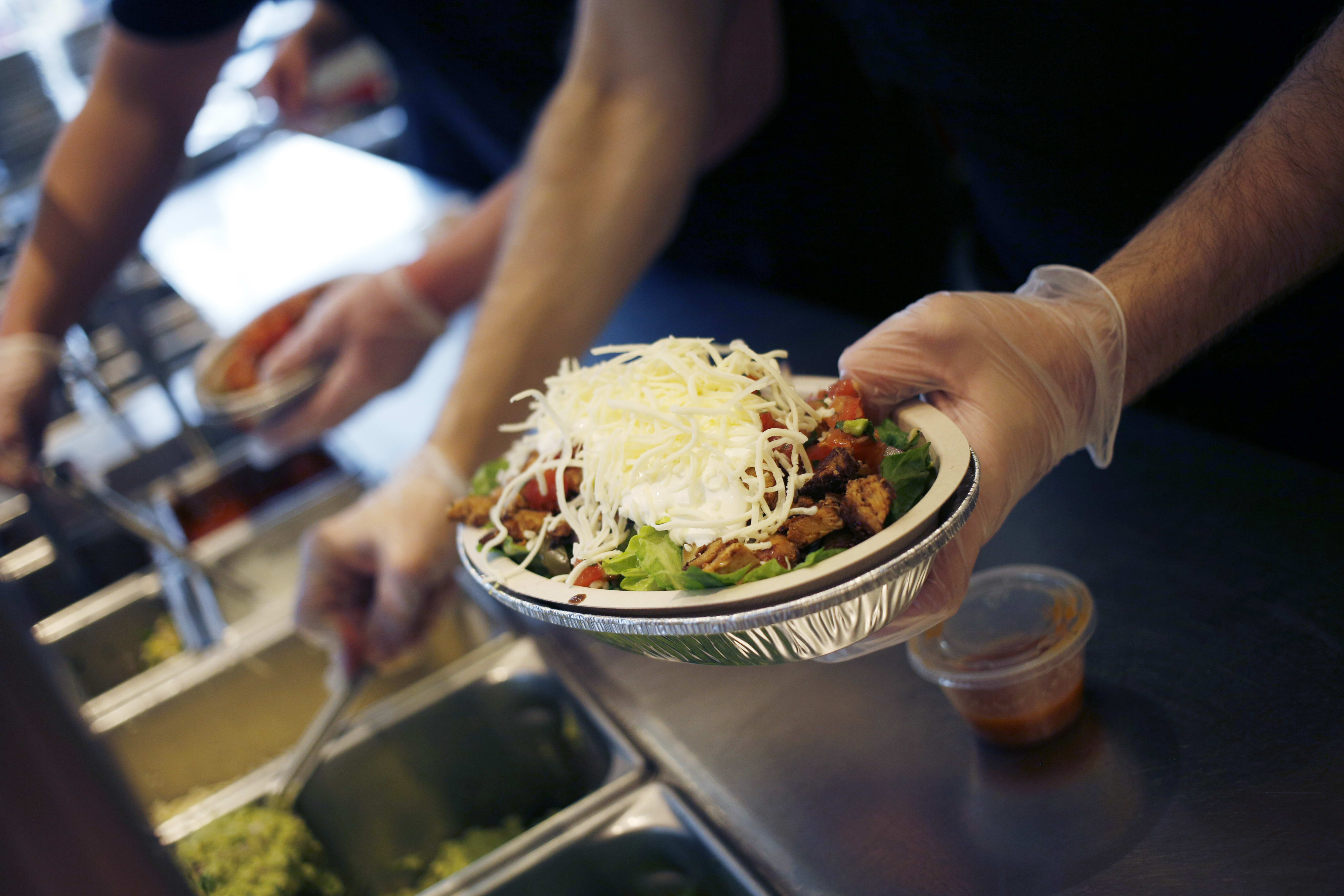
Food supply chains have so far held up despite the coronavirus bringing swaths of the American economy to a halt, CEOs from across the industry told CNBC on Friday.
“As of right now, the supply chain remains strong. It remains healthy,” Chipotle CEO Brian Niccol said on “Power Lunch.” “We’re fortunate that we’ve got such great partners getting us the Chipotle food we need to run our business.”
Niccol’s comments come as the food industry across the U.S. experiences upheaval due to the coronavirus pandemic. State and local governments are mandating the closure of restaurants and bars, except for takeout and delivery food, while grocery stores face increased demand as consumers stockpile goods.
The changing consumption has been beneficial to companies such as Freshly, a meal-delivery service, according to its CEO, Michael Wystrach.
Appearing Friday on CNBC’s “Squawk Box,” Wystrach said the company was seeing “unprecedented demand.” Yet Freshly has been able to continue sourcing its food without any supply chain breakdowns, Wystrach said.
“So far the local and state officials we’ve been working with have been very supportive of making sure that the food supply chain, and critical things around the supply chain, maintain,” he said.
Freshly also partnered with Nestle to donate $500,000 to Meals on Wheels America to help ensure seniors, who are at a greater risk of becoming seriously ill from COVID-19, are supported during the pandemic, Wystrach said.
While companies such as Freshly fit well into a so-called “stay at home” economy, companies that supply food for schools and restaurants are experiencing the need to pivot, said Kevin Hourican, CEO of Sysco.
In response, the food distributor has taken steps to help smaller restaurants that previously did not have robust delivery systems or websites deal with the new way of operating, Hourican said.
“We are working very hard to be able to help that smaller restaurant population that perhaps did not have the capabilities to do that on their own,” Hourican said on “Squawk Box.”
Sysco is also trying to tap into the grocery industry for revenues, Hourican said. It’s not a segment Sysco usually serves, but Hourican said he has personally made phone calls to the CEOs of the country’s largest grocers as they face an influx of demand.
“We have the largest food service supply chain in the United States,” he said. “We have trucks. We have drivers. We have food, and we can step in and really help these retail grocers fill their shelves.”
Niccol, who previously ran Taco Bell before joining Chipotle in February 2018, said one area of the food supply chain he is concerned about is the smaller food producers. He said Chipotle has many relationships with them as part of its commitment to “food with integrity.”
“I do believe they’re going to come under more and more pressure as demand softens across the restaurant industry,” Niccol said, adding he wanted to see the U.S. government consider them as part of coronavirus economic relief measures.
“I’m really hoping that there will be support for those small companies in the agriculture business, like young farmers and small family farms, as we get to the other side of this,” Niccol added.

